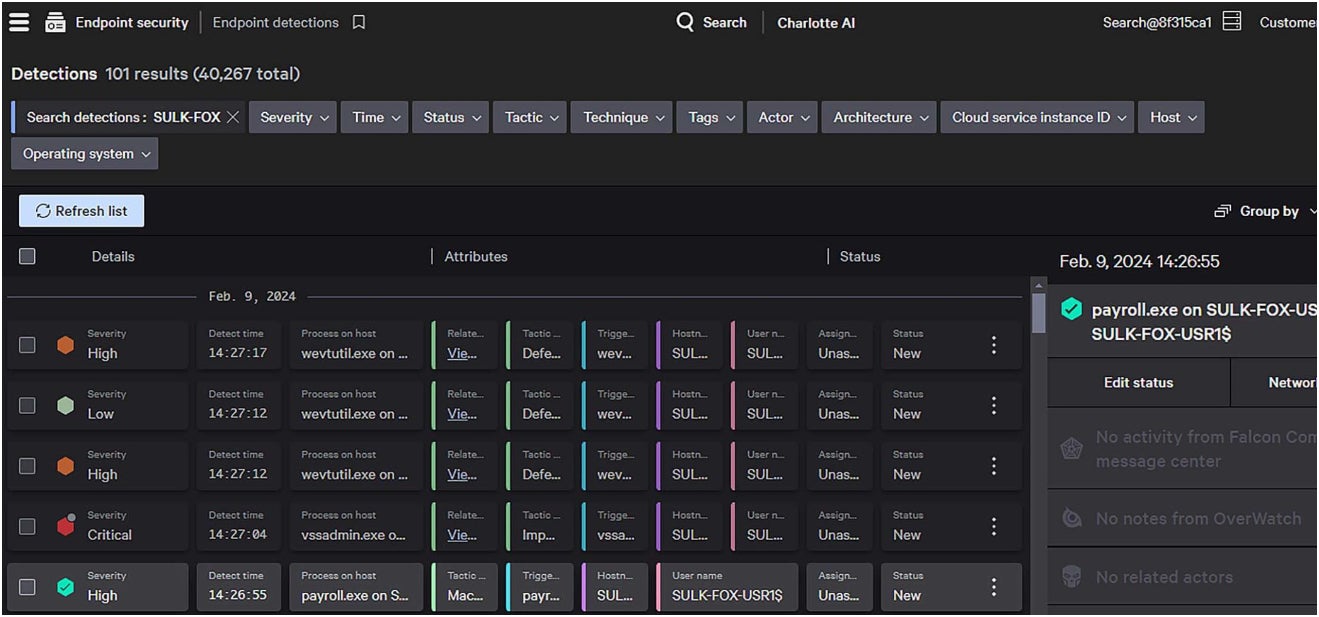- Explore Cisco IOS XE Automation at Cisco Live US 2025
- My top 5 picks for the best Memorial Day phone deals so far: Apple, Samsung, and more
- This smart ring is half the price of Oura Ring 4 and has no subscriptions - here's how it competes
- I highly recommend shopping these early health tracker Memorial Day deals
- The most reliable smart lock I've tested just hit one of its lowest prices ever
Crowdstrike vs Trellix (2024): What Are The Main Differences?

Security threats are a major concern for businesses, as they can have a number of undesirable consequences, including customer data breaches or loss of sensitive data. To protect against these threats, many businesses are turning to endpoint detection and response, or EDR, software.
SEE: 10 Myths about Cybersecurity You Shouldn’t Believe (TechRepublic Premium)
CrowdStrike and Trellix are two of the top EDR software options on the market. Both tools are adept at identifying and mitigating threats and vulnerabilities in order to keep your network and your data secure. Learn what features each one has to offer and how to decide between these two EDR solutions.
CrowdStrike vs. Trellix: Feature comparison
CrowdStrike is a cloud-based EDR tool that protects endpoints from critical vulnerabilities such as malware, phishing, and ransomware and DDoS attacks.
SEE: McAfee vs Kaspersky: Compare EDR Software (TechRepublic)
Trellix, on the other hand, is a new offering born out of McAfee and FireEye’s merger in 2022. It’s a cloud-based solution that helps reduce alert noise by prioritizing threats, thus minimizing workflow disruption.
Here’s a feature comparison of both EDR tools below:
| Malware and ransomware protection | ||
| Cloud-based | ||
| Local installation option | ||
| Behavioral threat analysis | ||
| Machine learning | ||
| Single-agent model | ||
| Starting price | ||
|
|
CrowdStrike vs. Trellix pricing
For pricing, Crowdstrike’s EDR solution can be purchased via their Falcon Enterprise and Falcon Elite subscriptions. Below is an overview of pricing and feature inclusions for each CrowdStrike Falcon plan.
- Falcon Enterprise: $184.99 per device; includes antivirus, EDR, XDR and managed threat hunting.
- Falcon Elite: Contact sales for quotation; includes EDR, XDR, integrated endpoint and identity protection and threat-hunting.
Fortunately, Falcon Enterprise has a free trial for businesses that don’t want to spend on an initial subscription to try out their service.
SEE: Carbon Black vs. CrowdStrike: EDR Software Comparison (TechRepublic)
Meanwhile, Trellix doesn’t explicitly advertise the pricing of its EDR solution. Right now, you can either view its Trellix EDR data sheet or request a demo of its product.
If you’re interested in Trellix, I highly recommend contacting its sales team for more information on pricing.
CrowdStrike vs. Trellix: Feature comparison
Threat detection and mitigation
Trellix’s endpoint solution features always-on data collection and a number of analytic engines throughout the detection stage to make sure that only the real threats or vulnerabilities are brought to your attention. This is opposed to other EDR systems that generate too many alerts on unimportant events, wasting resources without any security gains.
-
Trellix EDR’s main dashboard. Image: Trellix
CrowdStrike also offers detection rates for known threats, with its machine-learning based detection model being well-equipped for identifying unknown threats and attacks.
Behavioral learning
Trellix provides behavior-based detection that allows for a more consistent process in determining the risk of a threat, what stage it’s in and what response could be prioritized. This is on top of Trellix EDR’s AI-guided investigations that can create machine-generated insights into exploits or attacks for analysts within a company.
-

CrowdStrike Falcon Enterprise’s EDR and XDR solution. Image: CrowdStrike
Meanwhile, CrowdStrike’s event-based behavioral detection identifies indicators of attack in order to prevent sophisticated fileless and malware-free security breaches. It reviews records of previous threats to identify patterns that may indicate suspicious activity.
Single-agent design
Trellix EDR has a single-agent architecture with integrated advanced defenses like machine learning and threat containment.
CrowdStrike also features an integrated single-agent design for all functions. In addition to this, it features a single-sensor design that makes its system more lightweight and reduces the CPU usage associated with running CrowdStrike.
Should your organization use CrowdStrike or Trellix?
Both solutions can help you secure your data and network while offering protection from a variety of threats and attacks. If you prefer a security solution that prioritizes saving time and resources in vulnerability data collection, Trellix EDR’s alert noise reduction capabilities will benefit you more. Its AI-based insights can also be handy for security analysts in smaller companies that want to expand their skills.
On the other hand, CrowdStrike has a more complex system that is ideal for highly regulated industries or companies at higher risk of security attacks. It’s a great fit for enterprise businesses with complex security needs. Businesses operating in finance, government and healthcare often trust CrowdStrike to meet their enhanced security needs. CrowdStrike may also be a better choice if you have several endpoints to secure and desire more flexibility on deployment.
CrowdStrike pros and cons
Pros
- Easy to navigate UI.
- Unified and quick investigations.
- Accessible free trial.
Cons
- Installation can be complex.
Trellix pros and cons
Pros
- AI-guided investigations.
- Reliable performance.
- Emphasis on incident response.
Cons
Methodology
My comparison of CrowdStrike and Trellix’s EDR solutions involved doing a head-to-head comparison of their feature inclusions, pricing and overall value.
In particular, I considered important EDR functionality such as threat detection, malware protection, behavioral learning, incident response and investigation capabilities.
Our evaluation of both products involved extensive research of official product documentation, features included and possible use cases for different types of businesses. We also utilized third-party reviews and user feedback from reputable review sites to supplement our findings.

